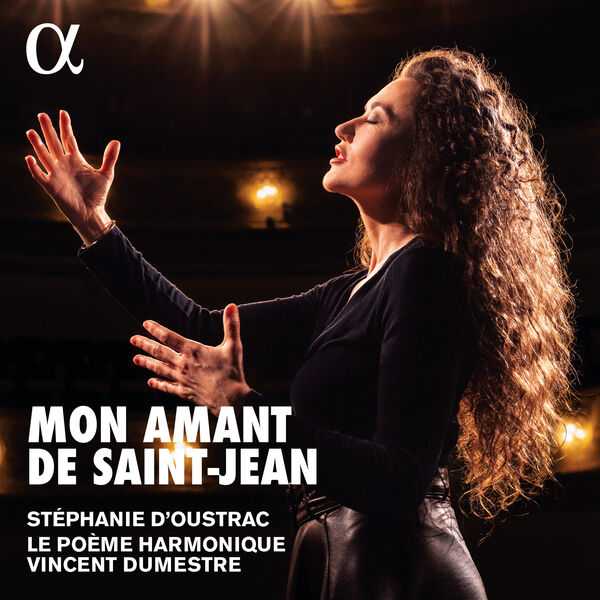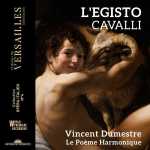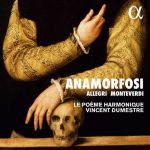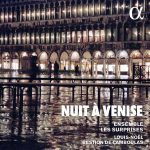

Composer: Pietro Francesco Cavalli, Marin Marais, Claudio Giovanni Antonio Monteverdi, Johann Vierdanck
Performer: Stéphanie d’Oustrac, Le Poème Harmonique
Conductor: Vincent Dumestre
Format: FLAC (tracks)
Label: Alpha
Catalogue: ALPHA988
Release: 2023
Size: 1.02 GB
Recovery: +3%
Scan: yes
01. Martine: J’ai perdu ma jeunesse
02. Marais: Les Voix Humaines
03. anon.: Dans mon jardin à l’ombre
04. anon.: La fille au roi Louis
05. Vierdanck: Canzona
06. Monteverdi: Lamento d’Arianna ‘Lasciatemi morire’, SV 107
07. Cavalli: Lasso io vivo
08. Marinier: D’elle à lui
09. Delmet: Les petits pavés
10. Cachan: Où sont tous mes amants ?
11. Legrand: Les nuits d’une demoiselle
12. Fossey: Les canards tyroliens
13. Carcel: Le tango stupéfiant
14. Carrara: Mon amant de Saint-Jean
Fascinated by the interplay of echoes from one past to another, Vincent Dumestre and Stephanie d’Oustrac found an affinity in the project Mon Amant de Saint-Jean, their very first collaboration, and aimed to make it a unique musical adventure: a recital in which the atmosphere of the chansons of the Annees Folles infuses early music with its sweet madness. In 1904, the great cabaret singer Yvette Guilbert was invited to the home of the Casadesus family, the founders of the Societe des Instruments Anciens (Early instrument society): the Baroque fraternised with the cafe-concert. Around the same time, in the revue Paris qui chante, an aria by Scarlatti rubbed shoulders with the coarse language of Aristide Bruant and Paulin, while Gaston Dumestre, a singer at the cabaret Le Chat Noir (and one of Vincent’s ancestors!), sang chansons realistes while accompanying himself on the theorbo presented to him by Oscar II of Sweden: ‘It is in language that we must seek the common driving force. These cabaret singers relished a very special flavour, a vigour, a raciness in the words of the Baroque era’, concludes Vincent Dumestre.
This release showed up on classical best-seller charts in the late summer of 2023, perhaps because it represented a genuinely original experiment. Mezzo-soprano Stéphanie d’Oustrac, the small ensemble Le Poème Harmonique, and conductor and theorbist suggest… well, what, exactly? That there is an affinity between French popular song and French and Italian music of the 17th century? Not quite, although there were intriguing connections between popular song, outlined in the booklet, and the very earliest stages of the historical performance movement at the end of the 19th century and the beginning of the 20th. The program is organized into three sections, “Jeunesse,” “Les vieux airs,” and “Les amours passées,” but the 20th century songs and the 17th century pieces mostly don’t overlap within these groups; “Les amours passées” are all popular songs. The program makes quite a lurch between an excerpt from Cavalli’s L’Egisto and Paul Marinier’s D’elle à lui, and the lurch would have been even greater if the popular songs hadn’t been chosen to exclude any hints of African-American-influenced song. Léon Fossey’s Les canards tyroliens, a kind of yodeling song about ducks, simply doesn’t inhabit the same universe as Monteverdi’s Lamento d’Arianna. Perhaps it would be best to say, as the publicity does, that there are “echoes” between the two traditions, and d’Oustrac plainly has enthusiasm for both repertories; her personality is largely enough to carry the listener through. There is definitely a need for programming and performance that mixes classical and popular material, which have never been as far apart as they have been made out to be. This release may not be a definitive solution, but it is an intriguing and listenable attempt.



